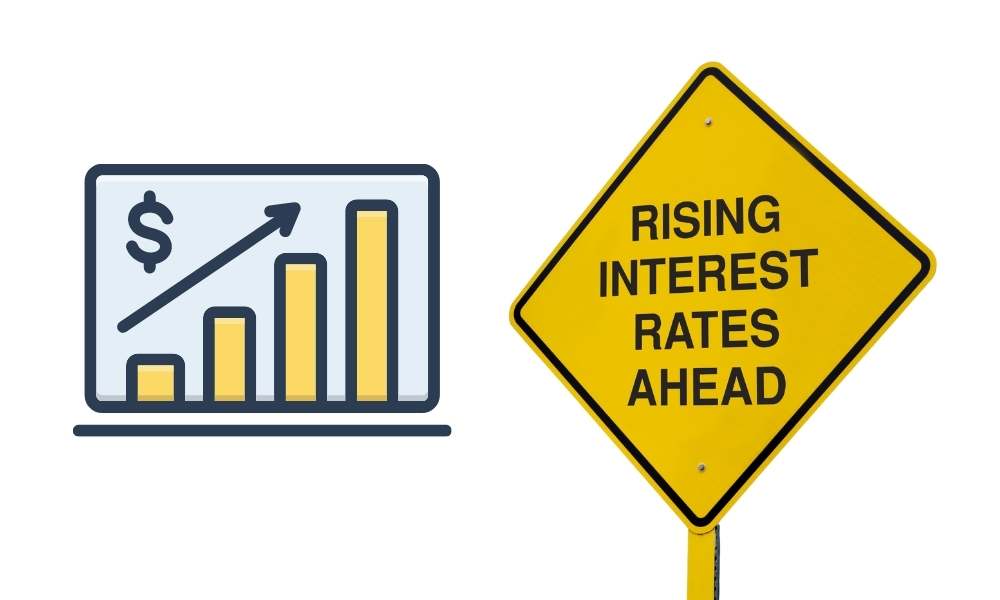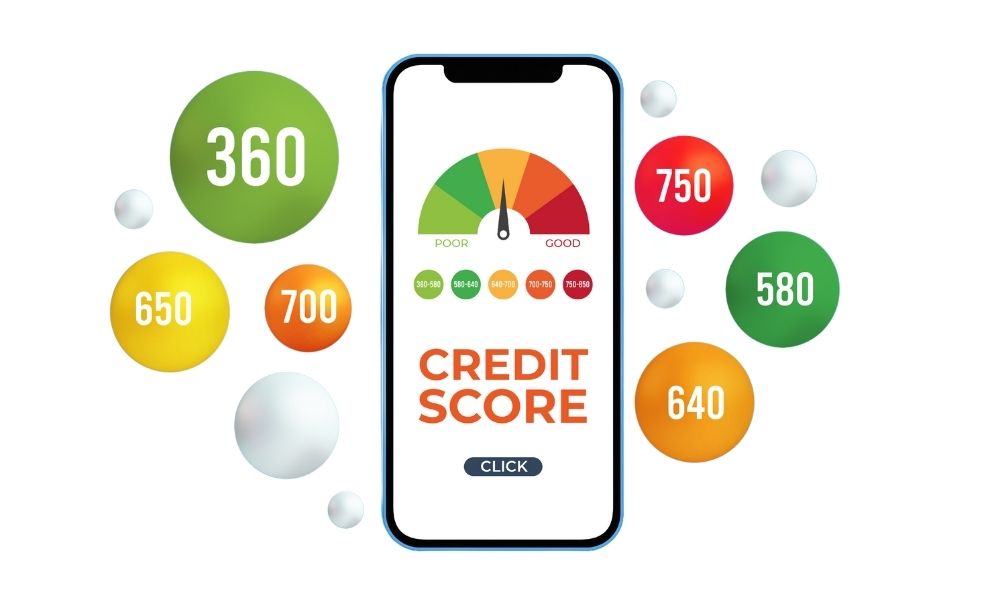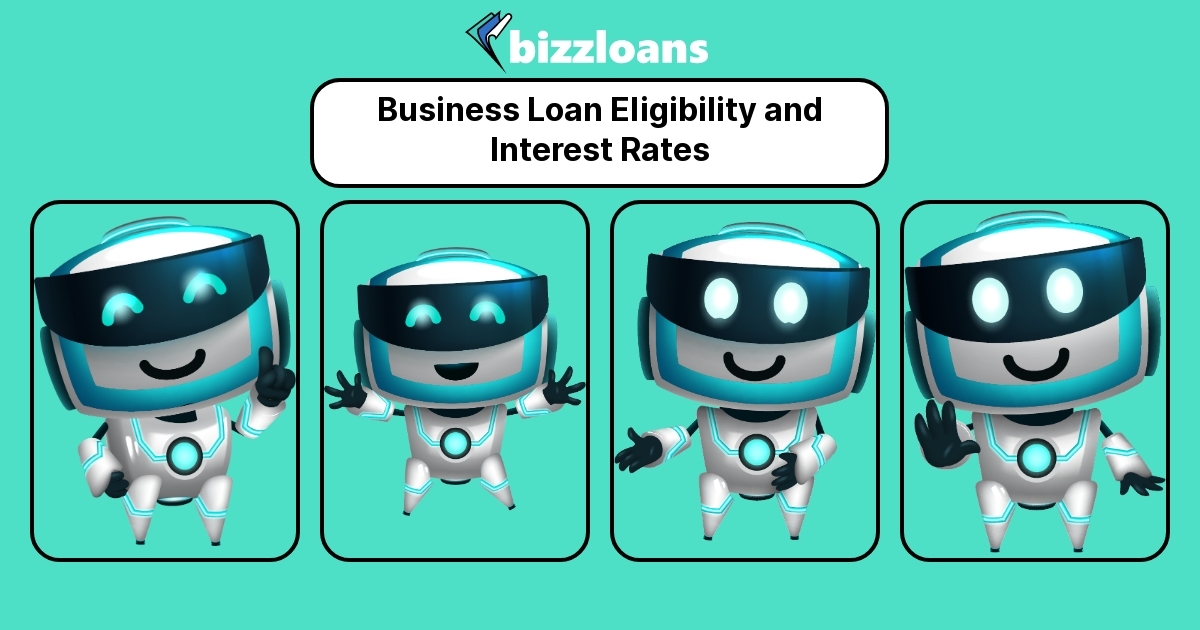If you want to get a business loan, understanding eligibility and interest rates is crucial. So here’s the info you need to know.
Applying for a loan can be complicated. Credit history, financial statements, and the loan purpose all come into play. Lenders evaluate these things before they decide.
Maintaining a good credit score is a must. It’s a key factor in eligibility. Also, having a business plan and proof of cash flow can help you get favorable terms.
Interest rates depend on market conditions and a lender’s risk assessment. Compare rates from multiple lenders to get the best deal. Lower rates reduce the cost of borrowing and keep payments manageable.
Some businesses may be eligible for lower interest rates, if they’re stable or have a good reputation. Others may have to pay higher rates due to risks associated with their operations or credit history. Knowing how lenders evaluate risk can help you show you’re a reliable borrower.
According to a recent survey, small businesses that researched multiple lenders were more likely to get loans with favorable interest rates. So, research is key before approaching potential lenders.

Factors Affecting Business Loan Eligibility
To increase your business loan eligibility and secure favorable interest rates, it’s essential to understand the factors that affect it. Explore how your credit score and history, business financial statements, and collateral and assets play a role in determining your eligibility.
Credit Score and History
Look at the table below to learn how credit score affects loan approval. Higher credit scores mean higher loan acceptance rates. A good credit record shows responsible financial management, leading lenders to trust you more.
| Credit Score Range | Loan Approval Rate |
|---|---|
| Excellent (800-850) | 90% |
| Very Good (740-799) | 80% |
| Good (670-739) | 70% |
| Fair (580-669) | 50% |
| Poor (300-579) | 20% |
Also, lenders examine credit histories for past defaults or late payments. Bankruptcies and foreclosures can reduce loan eligibility. Keeping a clean credit history is important for getting a good loan.

Knowledge of credit scores and histories helps borrowers make smart loan choices. Improving creditworthiness increases the chances of getting favorable loan terms.
Don’t miss this chance to get the perfect business loan. Take charge of your credit score and maintain a positive credit history to maximize your loan approval chances and help your business thrive.
Business Financial Statements
Income Statement is an essential element of Business Financial Statements. It is also known as Profit and Loss Statement. It shows business revenue, expenses & profit or loss in a particular period. Lenders check it to understand how profitable the business is.
Balance Sheet presents a snapshot of financial position of a company. It has assets (cash, inventory & property), liabilities (loans & accounts payable) & shareholders’ equity. This statement reveals financial stability of a company.
Cash Flow Statement highlights cash inflows & outflows within an enterprise. It shows money that goes in & out of the business from operations, investing & financing activities. Lenders use it to evaluate if a company can manage cash flow & debt repayments.

Company XYZ was not able to get loan due to incomplete financial records. After organizing their statements with professional help, they acquired sufficient funds to expand operations. So, accurate Business Financial Statements are important to secure a loan.
Collateral and Assets
Collateral and assets are major factors when it comes to getting a business loan. To reduce the risk for lenders, borrowers must provide assets as collateral. Different types of assets are accepted, like real estate, equipment, inventory, and accounts receivable.
Lenders also assess creditworthiness, such as credit scores, financial statements, and debt-to-income ratios.
Don’t miss out on opportunities! Take steps to strengthen your asset portfolio and maintain a good credit profile. This will help you meet lender requirements and set your business up for success.

Types of Business Loans and their Eligibility Criteria
To determine the eligibility criteria for different types of business loans, and find the best interest rates, explore the section on “Types of Business Loans and their Eligibility Criteria”. This section covers the details of Small Business Administration (SBA) Loans and Bank Business Loans as viable solutions.
Small Business Administration (SBA) Loans
Small Business Administration (SBA) Loans are rare and magical: they provide support to entrepreneurs seeking financial assistance. Low-interest rates and long repayment periods make them attractive and beneficial. The government guarantees these loans, which offer funding to businesses that may not qualify for traditional bank loans. They can be used for various purposes, such as working capital, buying equipment, or expanding operations. Plus, they have longer repayment terms and varying loan amounts and terms depending on the borrower’s eligibility. Applying for an SBA loan requires certain criteria to be met and detailed financial information to be provided.
These loans also come with counseling and assistance programs to help entrepreneurs succeed. The Small Business Administration website notes that loan recipients experience higher sales and employment growth rates compared to non-recipients. This shows the positive impact that SBA loans have on small businesses and the economy. It’s no wonder why these loans are like finding a unicorn in a suit and tie!
Eligibility Requirements for SBA Loans
SBA loans have some rules you must follow to be eligible for funding. These include what type of business, its size, and money situation. Here’s what you need to know:
| Criteria | Eligibility |
|---|---|
| Nature of Business | Must be in an allowed industry. |
| Business Size | Usually small or medium-sized businesses. |
| Financial Stability | Must have good credit and show you can repay. |
| Collateral | Some loans may need collateral. |
Plus, certain industries may have extra qualifications or limits. Make sure to check all the qualifications for each SBA loan before asking for one.
Let’s look at Sarah’s story. She wanted to open a clothing shop but had no money. She found out about SBA loans and was stoked. After studying the requirements, she saw her business was small and in an allowed industry.

She had good credit and a good plan, so she asked for an SBA loan. She got it thanks to meeting the criteria. And, she opened her shop!
This story shows how understanding and following SBA loan requirements can help your business dreams come true.
Interest Rates for SBA Loans
The interest rates for bank business loans vary, depending on the type of loan and your creditworthiness. For example, the 7(a) Loan Program has an interest rate range of 6.25% to 8.75%. The 504 CDC Loan Program has an interest rate range of 2.65% to 4.85%. The Microloan Program has an interest rate range of 5% to 10%.
These are just estimates. Your actual interest rate could be higher or lower, based on things like your credit score, collateral, and the repayment term.
John is a great example. He wanted to start his own business, and didn’t have the funds. He applied for an SBA loan. He was delighted that he was offered an interest rate of only 6%, due to his good credit history and sound business plan.
Bank Business Loans
Banks offer different loan types for businesses. They are:
- Term Loans
- Line of Credit
- Equipment Financing
- Commercial Real Estate Loans
- SBA Loans
- Merchant Cash Advances
They may also offer specialized loans for certain industries.
It’s important to research and compare before applying. Pro Tip: Assess your business’s financial health and determine how much money you need. This will help you get the right loan and increase your chances of approval. Winning a bank loan is like winning the lottery – only if you meet eligibility criteria and have a great credit score plus an unbeatable business plan.

Eligibility Requirements for Bank Loans
When applying for a bank loan, it’s essential to meet the eligibility criteria. Here are three main points to consider:
- Credit Score: Banks consider the borrower’s credit score. A higher score increases chances of loan approval.
- Income and Financial Stability: Banks assess income and financial stability to determine if the borrower can repay. Regular income and a good financial history increase chances of approval.
- Collateral or Guarantor: Depending on the loan, banks might need collateral or a guarantor. The collateral serves as security, while the guarantor provides assurance in case of default.
Plus, banks may have other special requirements. It’s important to research and understand these details before applying.
Interestingly, 80% of small businesses don’t meet the criteria for business loans, according to a report by [source name]. Interest rates for bank loans can be overwhelming.
Interest Rates for Bank Loans
Interest rates for bank loans fluctuate based on a number of factors. These include the type of loan, the borrower’s credit score, and market conditions. Here is a table to give you an idea of the rate range for each loan type:
| Loan Type | Interest Rate Range (per annum) |
|---|---|
| Business Term Loan | 5% – 12% |
| Commercial Mortgage | 3% – 6% |
| Small Business Loan | 7% – 15% |
| Equipment Financing | 4% – 9% |
| Line of Credit | 6% – 15% |
These are subject to change, depending on the lender. Plus, extra fees may be added based on the loan terms. To make an informed decision, it’s wise to get offers from multiple lenders and compare them.

In addition to interest rates, borrowers should also consider other criteria, such as credit score requirements, collateral needed, and repayment terms. These vary in cost and feasibility.
During the financial crisis in 2008, central banks reduced interest rates to encourage borrowing and economic growth. This was to help people and businesses who were struggling.
When looking for a bank loan, it’s important to consider interest rates and other eligibility criteria. Do this, and you’ll be able to make a smart decision that meets your financial goals. Finding financing options for those with limited eligibility is like looking for a good hair day during a hurricane!
Alternative Financing Options for Businesses with Limited Eligibility
To improve eligibility for business loans and find alternative financing options, explore online lenders and peer-to-peer lending. Unlocking these options can provide suitable interest rates and flexible terms tailored to your specific needs. Discover the potential solutions that lie within the realm of online lenders and the emerging trend of peer-to-peer lending.
Online Lenders
Online lenders provide an alternative financing option for businesses with limited eligibility. They understand the challenges these businesses face and tailor financial solutions to meet their needs.
- Loan application processes are simpler, reducing paperwork and time.
- Various loan options such as term loans, lines of credit, and invoice financing.
- Funding decisions are made quickly, offering businesses access to funds within days.
- Some online lenders focus on small businesses or startups.
- Interest rates and fees differ, so comparison is essential.
Moreover, online lenders prioritize customer satisfaction. Before applying, consider loan offer terms and conditions, such as interest rates, repayment terms, and additional fees. Get help from financial professionals who can guide you and help you make a smart decision.

Pro Tip: Have a plan for repayment before applying. This not only increases approval chances, but also shows commitment to responsible financial management. Find the perfect online loan – like a unicorn with a credit score of 800!
Eligibility Criteria for Online Loans
Do you need an online loan? Interest rates may be high, but you don’t need to sell your soul to the devil! To access funds, you must meet eligibility criteria. Here are six points to take note of:
- Operating Time: Your business must have been running for a minimum of six months.
- Revenues: Lenders often require a certain amount of monthly revenue.
- Credit Score: A good credit score shows you can manage debt and repay loans.
- Collateral: Some lenders may ask for assets or property as collateral.
- Financial Statements: Profit and loss statements or bank statements are needed.
- Legal Documentation: Licenses and permits may be required.
Be aware that specific lenders may have extra criteria, so prepare for variations. Besides these points, businesses must also consider industry-specific requirements or restrictions. According to Forbes, alternative financing options are popular among small businesses due to their flexible eligibility criteria.
Interest Rates for Online Loans
Are you considering online loans? It’s important to understand the interest rates! Different lenders offer different rates depending on credit and terms. Check out the table below:
| Lender | Interest Rate (APR) |
|---|---|
| Lender A | 8.5% |
| Lender B | 10.2% |
| Lender C | 12.1% |
| Lender D | 9.8% |
It’s essential to read the fine print before deciding! Some lenders may require collateral or extra fees. Plus, a research showed that there could be up to 4% difference in APR between different lenders.
No time for that? Get a loan from a friend who’s tired of hearing your stories – for free!
Peer-to-Peer Lending
Peer-to-Peer (P2P) lending offers an alternative to traditional bank loans. It cuts out the middleman, and provides more flexibility with loan amounts and repayment terms. Plus, it can be faster than other financing options! It’s a win-win for both borrowers and lenders.
Advanced algorithms and technology are used to assess creditworthiness, which allows businesses with limited eligibility for traditional loans to get funding through P2P lending.
Before engaging in P2P lending, it’s important to research different platforms, compare interest rates and fees, and read reviews from other users. Eligibility Requirements for Peer-to-Peer Loans – even dating apps are more lenient!
Eligibility Requirements for Peer-to-Peer Loans
Peer-to-peer loans offer an alternative financing opportunity for businesses with limited eligibility. But what are the requirements to qualify? Here’s the scoop:
- Credit Score: Most lenders require a minimum credit score, and the higher your score, the better your chances of approval.
- Income Verification: Proof of income is needed to ensure that you have enough funds to repay the loan.
- Debt-to-Income Ratio: A lower debt-to-income ratio indicates better financial health.
- Loan Purpose: Some peer-to-peer lenders restrict the use of funds to specific purposes.
- Length of Credit History: A longer credit history may improve your chances of being approved.
- Collateral: Unlike traditional bank loans, peer-to-peer lending often does not require collateral.
It’s important to check the terms and conditions before applying for a peer-to-peer loan. And according to a study by Lend Academy, 80% of approved borrowers had previously tried other sources of funding, but weren’t successful. So peer-to-peer lending can be a great option for those who can’t access traditional financing!
Interest Rates for Peer-to-Peer Loans
The interest rates for peer-to-peer loans vary. Factors such as creditworthiness, loan term, and loan amount are taken into account. Check out the table below:
| Loan Amount | Term | Interest Rate Range |
| $1,000 – $5,000 | 1 – 3 years | 8% – 12% |
| $5,001 – $10,000 | 2 – 5 years | 6% – 10% |
| $10,001 – $25,000 | 3 – 7 years | 4% – 8% |
Peer-to-peer lending platforms often offer lower rates than traditional banks. This makes them great for borrowers who don’t meet the strict criteria of many lenders.
To get the best rate, have a good credit score and a solid financial track record. Lenders prefer borrowers who have shown they can repay the loan.
Now that you know what to expect from peer-to-peer loans, don’t miss out on getting the funding you need. Take advantage of this alternative financing option with competitive rates! Finding a good interest rate is like finding a unicorn – rare and magical.
Tips for Improving Business Loan Eligibility and Getting Favorable Interest Rates
To improve your eligibility for a business loan and secure favorable interest rates, focus on building a strong credit profile, demonstrating financial stability and positive cash flow, and providing adequate collateral or guarantees. These sub-sections offer solutions to enhance your chances of loan approval and obtain more favorable borrowing terms. Remember, the key lies in presenting a robust financial background and showcasing your ability to repay the loan.
Building a Strong Credit Profile
Pay bills on time: To maintain a good credit profile, staying on top of deadlines is essential. Late payments can hurt credit scores and make it hard to get business loans.
Reduce debt: Lowering balances on accounts like credit cards helps creditworthiness. Aim to keep debt low.
Diversify credit types: Showing you can manage different kinds of credit (installment and lines of credit) responsibly demonstrates good borrowing.
Monitor credit reports: Checking reports helps spot errors. Fix them fast to stop negative impacts on loan eligibility.
Build long-term relationships with lenders: Good relationships with lenders boosts credit profile. Prompt payments and open communication can lead to better terms when seeking loans.
Stay informed: Knowing the latest trends and having current financial records are key to a strong profile.
External factors: Economic conditions and industry outlooks may influence lenders’ decisions.
Higher scores: Experian’s research found businesses with higher credit scores usually get lower interest rates.
Demonstrating Financial Stability and Positive Cash Flow
Businesses can display financial stability by presenting key documents, such as balance sheets, income statements and cash flow statements. They also need to show positive cash flow to show that they have enough money to cover expenses and debt.
Here’s an example of how data can improve loan eligibility:
| 2019 | 2020 | 2021 | |
|---|---|---|---|
| Revenue | $500,000 | $600,000 | $700,000 |
| Expenses | $400,000 | $450,000 | $500,000 |
| Net Income | $100,000 | $150,000 | $200,000 |
| Cash Flow | $120,000 | $160,000 | $180,000 |
Businesses should also mention unique details that improve their loan application. This can be major contracts or partnerships secured, or cost-cutting measures increasing profitability.
Demonstrating financial stability and positive cash flow not just boosts loan eligibility, but also increases bargaining power with lenders. Companies should present strong financial data and growth potential, to secure favorable interest rates on their loans.
Don’t miss this chance to showcase your business’s financial standing! Show lenders your potential by highlighting your stable finances and positive cash flow trends. Secure a favorable loan with low interest rates and watch your business soar to success – with a little magical help from collateral!
Providing Adequate Collateral or Guarantees
Collateral or guarantees are must-haves when trying to get a loan. Lenders need tangible assets they can fall back on if you don’t pay. These assets make lenders feel safer and more likely to approve your loan.
Collateral also secures the amount you borrow. Items like real estate, equipment, inventory, and even your own stuff can be used. The value of these should match or exceed the amount you want to borrow.
Having someone to vouch for you can help too. This should be someone with good credit and solid finances. This adds to your credibility and lowers the lender’s risk.
By adding collateral or guarantees, you show that you plan to pay back the loan. This makes lenders more confident and could get you better interest rates.
ABC Inc. is a prime example. They had trouble getting a loan because of their history and lack of assets. When they got a deal with a big company and put their inventory up as collateral, they got a loan with good interest rates.
These tips can help you get a loan, no matter how bad your business is doing.

Conclusion
When assessing business loan eligibility and interest rates, it’s clear that research and careful consideration are essential. It’s important to consider one’s financial ability, creditworthiness and lender terms. Interest rates can affect loan affordability, so research and compare different lenders’ rates. Low interest rates may seem great, but fees and charges must be evaluated too.
Having a good credit score can help one’s eligibility for business loans. Lenders usually look at an applicant’s credit history to check repayment ability and trustworthiness. Building a good credit history by making payments and managing credit accounts is helpful.
Accurate bookkeeping and organized financial records can show financial stability. This gives lenders a better understanding of a business’s financial situation.
Getting a co-signer or guarantor to share responsibility for repayment might lower the risk perception for lenders. Plus, building relationships with local banking institutions or alternative lending platforms is a good idea. Regular interactions and advice on improving creditworthiness can create opportunities.
By considering these factors and taking practical steps such as research, maintaining a good credit score, showcasing financial stability, seeking help from co-signers/guarantors, and building relationships with suitable lenders, businesses can optimize their chances of securing appropriate loans at favorable terms.


